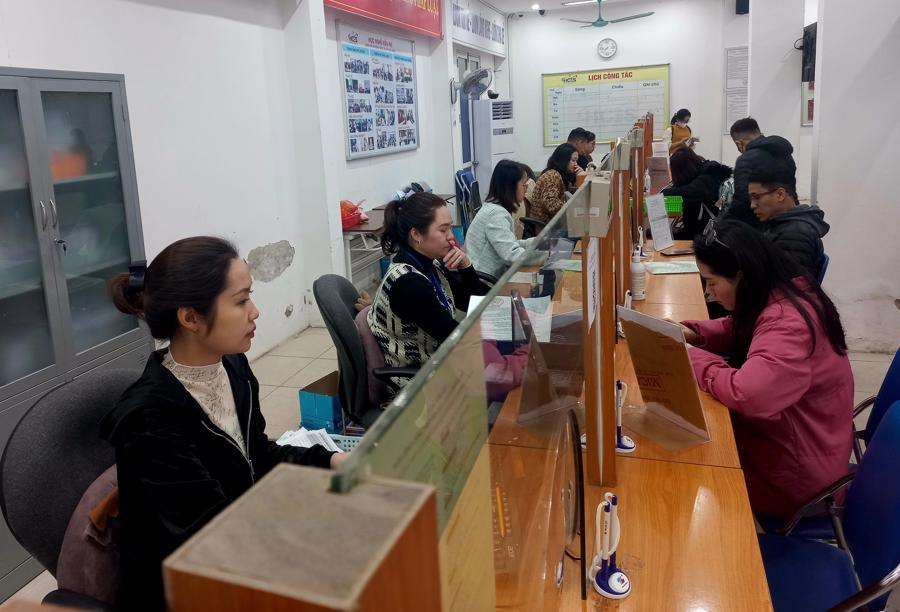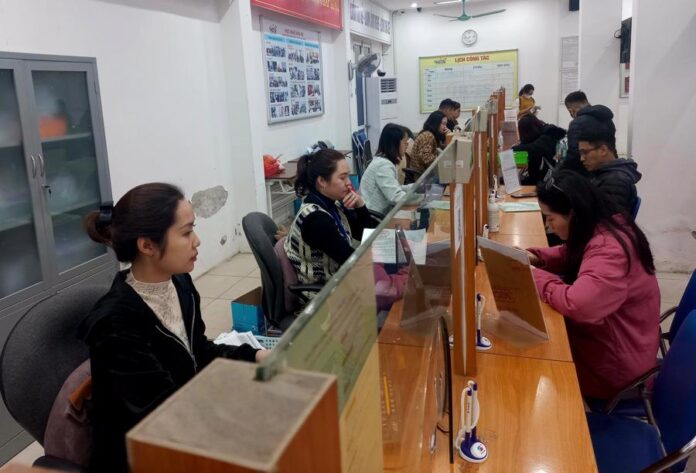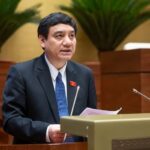The draft Unemployment Insurance Law (amended) proposes to stipulate cases where unemployment benefits will not be paid, but many opinions suggest that the conditions for receiving benefits should be relaxed to protect the rights of insured workers.
GUARANTEEING THE RIGHTS OF UNEMPLOYMENT INSURANCE PARTICIPANTS
Regarding the conditions for receiving unemployment benefits, the current draft Law stipulates that those who are not eligible for unemployment benefits include: workers who unilaterally terminate their labor contract in violation of the Labor Law; workers who unilaterally terminate their labor contract in accordance with the Law on Civil Servants; and workers who retire.
Commenting on the draft Unemployment Insurance Law (amended), Deputy Nguyen Minh Tam from Quang Binh province suggested that the drafting committee reconsider the provision that workers who unilaterally terminate their labor contract in violation of the Labor Law and those who unilaterally terminate their labor contract in accordance with the Law on Civil Servants should not be eligible for unemployment benefits.
This is because the termination of a labor contract between a worker and an employer is a labor relationship, while the receipt of unemployment insurance is the right of a worker who has participated in unemployment insurance.
“Therefore, when a worker loses their job for any reason, even if they unilaterally terminate their labor contract in violation of the law, they should naturally be entitled to unemployment benefits,” said Deputy Nguyen Minh Tam.
“They should only be denied unemployment benefits if they do not participate in or fail to comply with the regulations on paying unemployment insurance contributions. This will encourage workers to participate in unemployment insurance,” he added.
On this issue, the Standing Committee of the National Assembly stated in its report on the reception, explanation, and editing of the draft Unemployment Insurance Law (amended) that the draft Law is oriented towards inheriting the provisions of the 2013 Unemployment Insurance Law.
If a worker unilaterally terminates their labor contract or work contract but complies with legal regulations, they will still be eligible for unemployment benefits.
This regulation aims to prevent cases where workers quit their jobs without prior notice to the employer, affecting the production and business activities of the unit, organization, or enterprise before finding a replacement or completing the handover of work.
However, Deputy Nguyen Minh Tam expressed his concern. He cited the provisions of Article 428, Clause 2 of the Civil Code, which states, “The party that unilaterally terminates the performance of the contract must immediately notify the other party of the termination of the contract. If no notification is given and damages occur, compensation must be paid.”
Clause 4 of the same article stipulates, “The damaged party shall be compensated for damages caused by the other party’s failure to perform its contractual obligations.”
“Thus, when a worker quits their job without prior notice to the employer, affecting the production and business of the enterprise and causing damage to the enterprise, the enterprise has the right to sue, and the worker has the responsibility to compensate,” said Deputy Nguyen Minh Tam. “Therefore, I suggest considering this content to protect the legitimate rights and interests of unemployment insurance participants.”
CONSIDERING ADJUSTMENTS TO THE CONDITIONS FOR RECEIVING BENEFITS
Also related to the conditions for receiving unemployment benefits, according to Article 40 of the draft Law, in addition to the conditions for workers to be eligible for unemployment benefits, such as not falling into the cases where they are not entitled to unemployment benefits, the prerequisite for workers to receive this benefit is that they must be paying unemployment insurance at the time of termination of their labor contract or work contract or cessation of work.

Specifically, the draft Law stipulates that the worker must have paid unemployment insurance for at least 12 months within the 24 months before the termination of the labor contract, work contract, or cessation of work in accordance with the law.
In the case of workers with fixed-term labor contracts of one month or more but less than 12 months, they must have paid unemployment insurance for at least 12 months within the 36 months before the termination of the labor contract.
Discussing the draft Unemployment Insurance Law (amended), Deputy Do Ngoc Thinh from Khanh Hoa province assessed that this regulation means that the worker must have paid unemployment insurance in the month immediately preceding the termination of their labor contract or work contract or cessation of work, as confirmed by the Social Insurance Organization.
This could cause difficulties for workers employed by enterprises that owe unemployment insurance when their labor contract, work contract, or work is terminated, as they will be left without a job, salary, or eligibility for unemployment benefits. As a result, these workers will not meet the conditions for receiving benefits.
Therefore, the deputy suggested that the drafting committee consider adjusting the conditions for receiving unemployment benefits to focus on the worker’s participation in unemployment insurance rather than requiring them to pay unemployment insurance in the month immediately preceding the termination of their labor contract, work contract, or work.
According to the National Assembly’s Standing Committee, Article 40 of the draft Law stipulates the conditions for receiving unemployment benefits, including the condition that the worker must have paid unemployment insurance for at least 12 months within the 24 months before the termination of their labor contract, work contract, or cessation of work in accordance with the law.
However, to protect the rights of workers engaged in seasonal work or short-term contracts (less than 12 months), they only need to have paid unemployment insurance for at least 12 months within the 36 months before the termination of their labor contract. This provision inherits the current regulations, aiming to maintain better benefits for unemployed workers who do not contribute continuously. Therefore, it does not contradict the provisions of Article 20 of the Labor Law regarding types of labor contracts.
“Employer’s Liability for Delayed or Evaded Unemployment Insurance Contributions for Employees”
The proposed amendments to the Labor Law seek to protect the interests of employees by holding employers accountable for their failure to pay sufficient unemployment insurance contributions. In such cases, employers will be required to compensate their employees by paying an amount equivalent to the unemployment benefits that the employee would have otherwise been entitled to receive.
Unemployed and Unstoppable: Navigating Unemployment Benefits with Confidence.
The proposed amendments to the Employment Law have removed a provision that denied unemployment insurance benefits to employees who were fired or forced to resign due to disciplinary action.
Crafting Compelling Content to Counteract Trade Tax Turbulence
The US tariff policy and the subsequent reactions from other countries are expected to significantly impact the Vietnamese labor market, particularly those directly employed by exporting enterprises. This may result in labor reductions or shifts, causing a potential disruption to the country’s employment landscape.





















